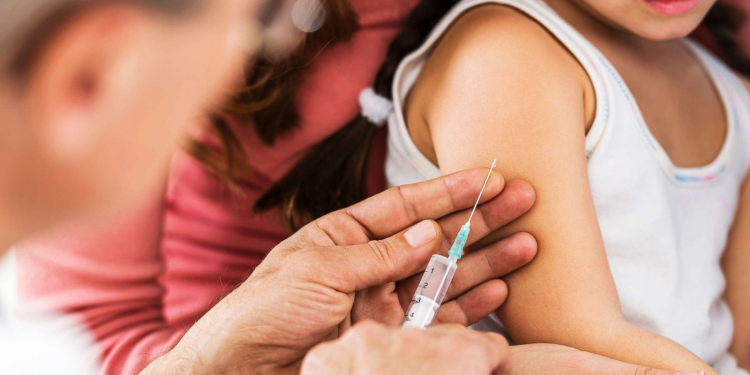The FINANCIAL — Public health experts have emphasized that during the COVID pandemic, it is important for people of all ages to get seasonal flu vaccine this year. In August 2020, the C.S. Mott Children’s Hospital National Poll on Children’s Health asked a national sample of parents about getting flu vaccine for their children age 2-18 years. 32% of parents say their child is unlikely to get flu vaccine this year. Among parents who will not seek flu vaccine for their child this year, 1 in 7 say they are keeping their child away from health care sites due to concerns about COVID.
One-third of American parents have no plans to get their children vaccinated for the flu this year, despite the very real possibility their child could also catch the deadly Covid-19. In addition, two-thirds of parents don’t believe getting a flu shot for their child is more important this year, despite advice to the contrary from major government organizations and pediatricians, CNN reported.
Among the 32% of parents who say their child is unlikely to get flu vaccine this year, the most common reasons include concerns about side effects from flu vaccine (42%) and belief that flu vaccine is not necessary (40%) or effective (32%). Fourteen percent will not seek flu vaccine because they are keeping children away from health care sites due to COVID; 9% say their child is afraid of needles or does not want to get flu vaccine, according to National Poll On Children’s Health.
Influenza has led to between 9 to 45 million illnesses, 140,000 to 810,000 hospitalizations and 12,000 to 61,000 deaths a year since 2010, according to estimates by the Centers for Disease Control. Children younger than five, and especially those younger than two, are at high risk of developing serious flu-related complications. The CDC reported 188 pediatric flu deaths during the 2019-2020 flu season. The nationally representative Mott Poll report includes 1,992 responses from parents of children age 2-18 years who were surveyed in August. Families who were least likely to get children vaccinated against the flu were those who didn’t do so last year—less than a third of those parents say their child will probably get a flu vaccine this year, MedicalXpress wrote.
Flu vaccination prevents millions of flu-related illnesses and deaths annually, but vaccination rates are low for many reasons. During the 2018-2019 flu season, the Centers for Disease Control and Prevention reported that about 45 percent of U.S. adults received the flu vaccine. While this is an increase of 8 percent from 2017-2018, it falls way below the national goal of 70 percent of American adults receiving a flu shot. One of the common myths that leads people to avoid the flu shot is that they think the shot will give them the flu. But that is simply not true. The virus in the vaccine is not active, and an inactive virus cannot transmit disease. What is true is that you may feel the effects of your body mounting an immune response, but that does not mean you have the flu, as reported by The Washington Post.
National Poll on Children’s Health stated that parental intention regarding flu vaccine this year is slightly lower for parents of teens compared to younger children (73% for 2-4 years, 70% for 5-12 years, and 65% for 13-18 years). One-third of parents (34%) believe that having children get flu vaccine is more important this year compared to other years; 8% say it is less important, and 58% say it is about the same. Parents who believe flu vaccine is more important this year are more likely to intend for their child to get the vaccine (94% more important vs 55% same/less important).
It should be noted that three of the UK’s senior medics – Dr Yvonne Doyle, Professor Jonathan Van-Tam and Dr Nikita Kanani – are calling on all eligible people to get vaccinated against flu, as new research from Public Health England (PHE) suggests the risk of death more than doubled for people who tested positive for both flu and COVID-19, compared to those with COVID-19 alone. The research, looking at cases between January and April this year, also found that those with co-infection of the 2 viruses were more at risk of severe illness. Most cases of co-infection were in older people and more than half of them died. Read more.





























Discussion about this post